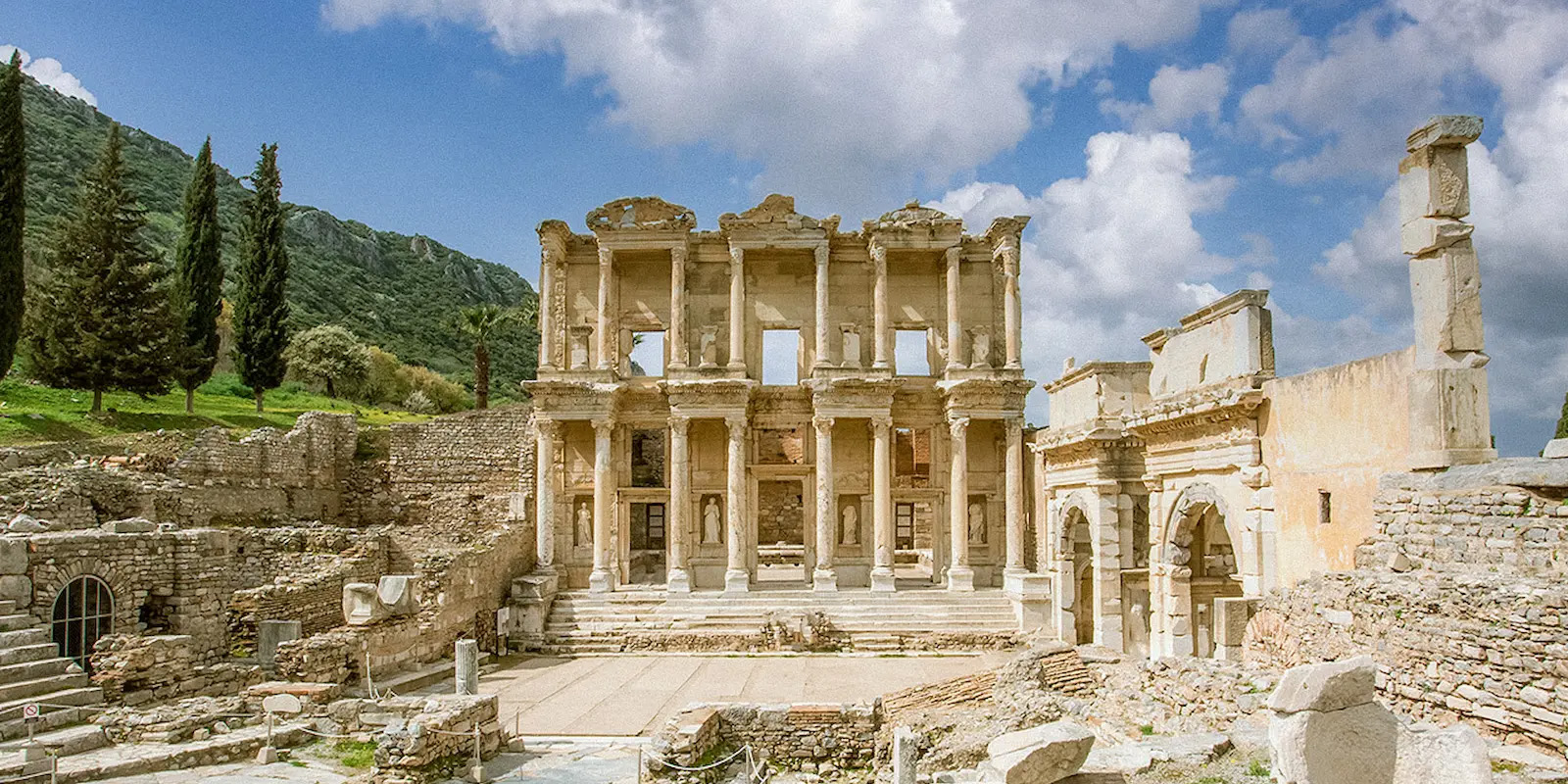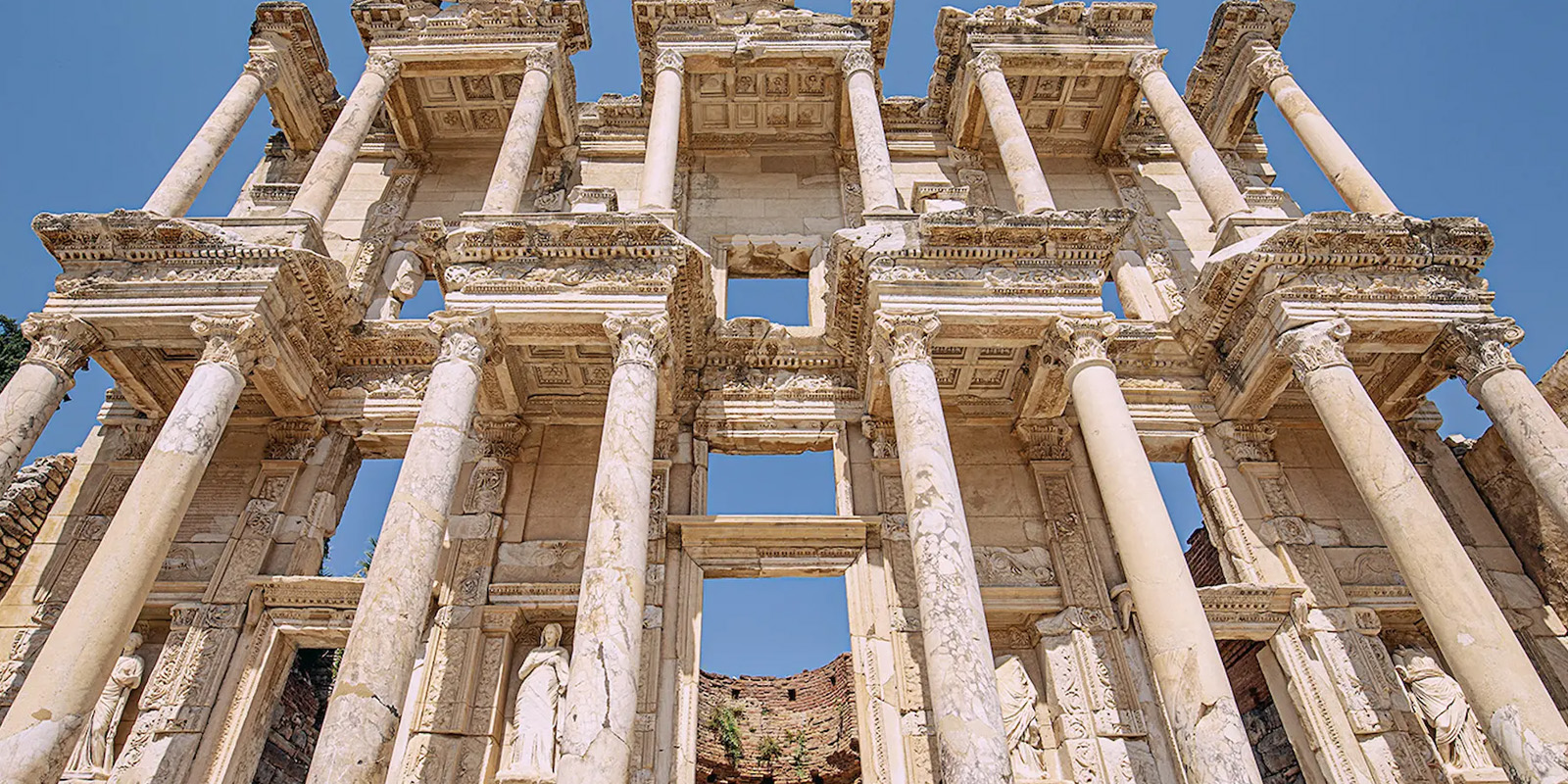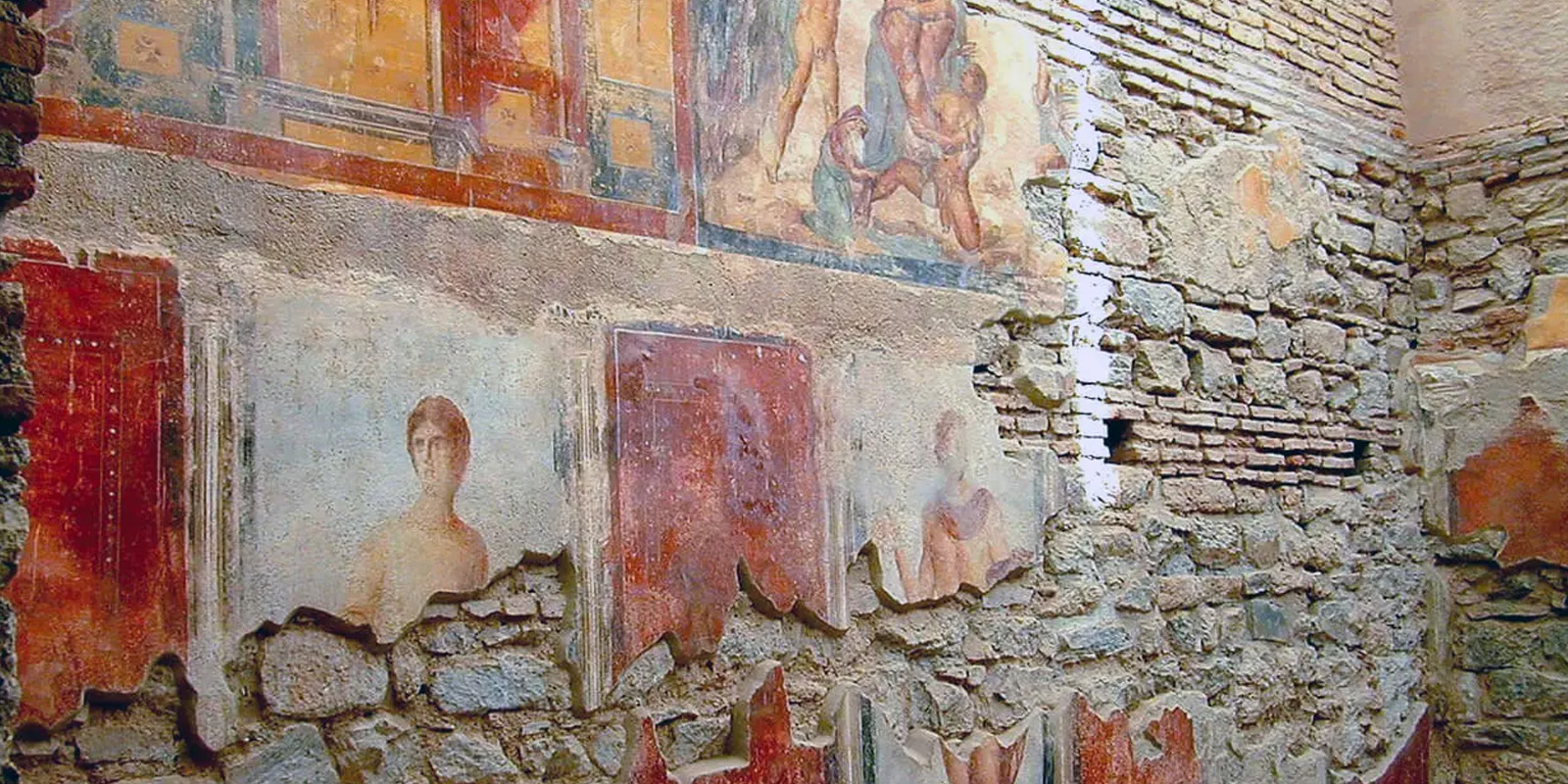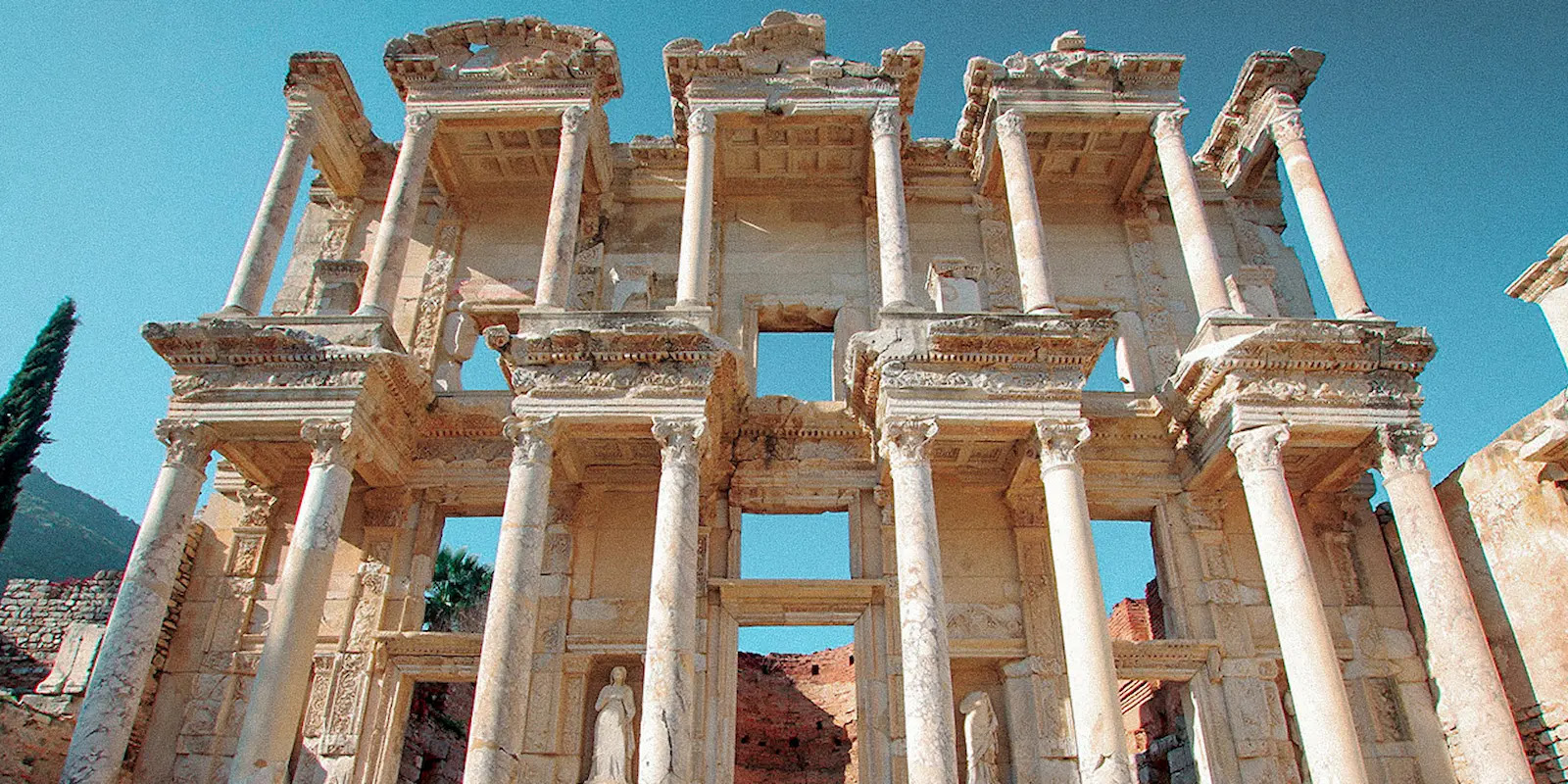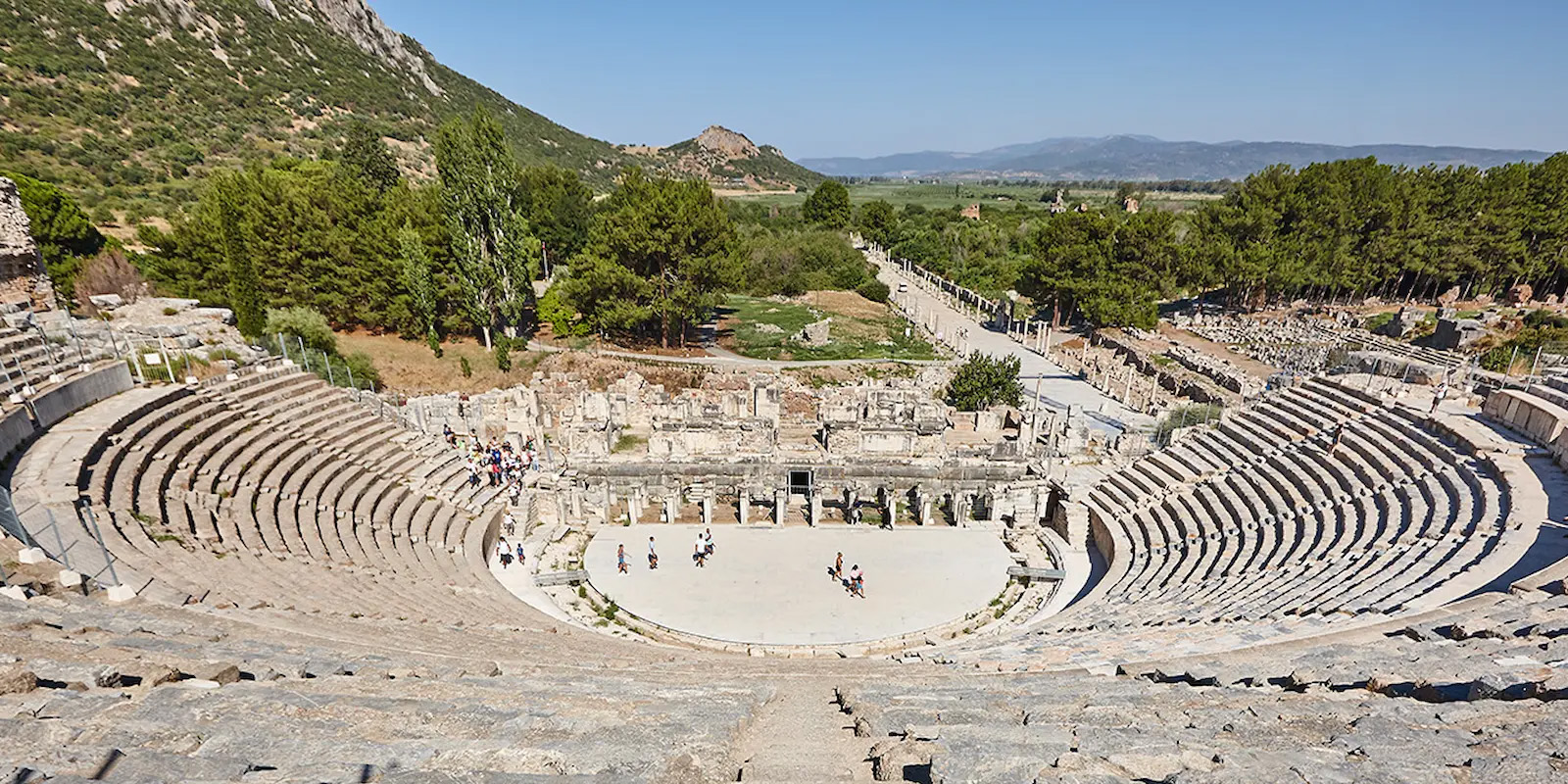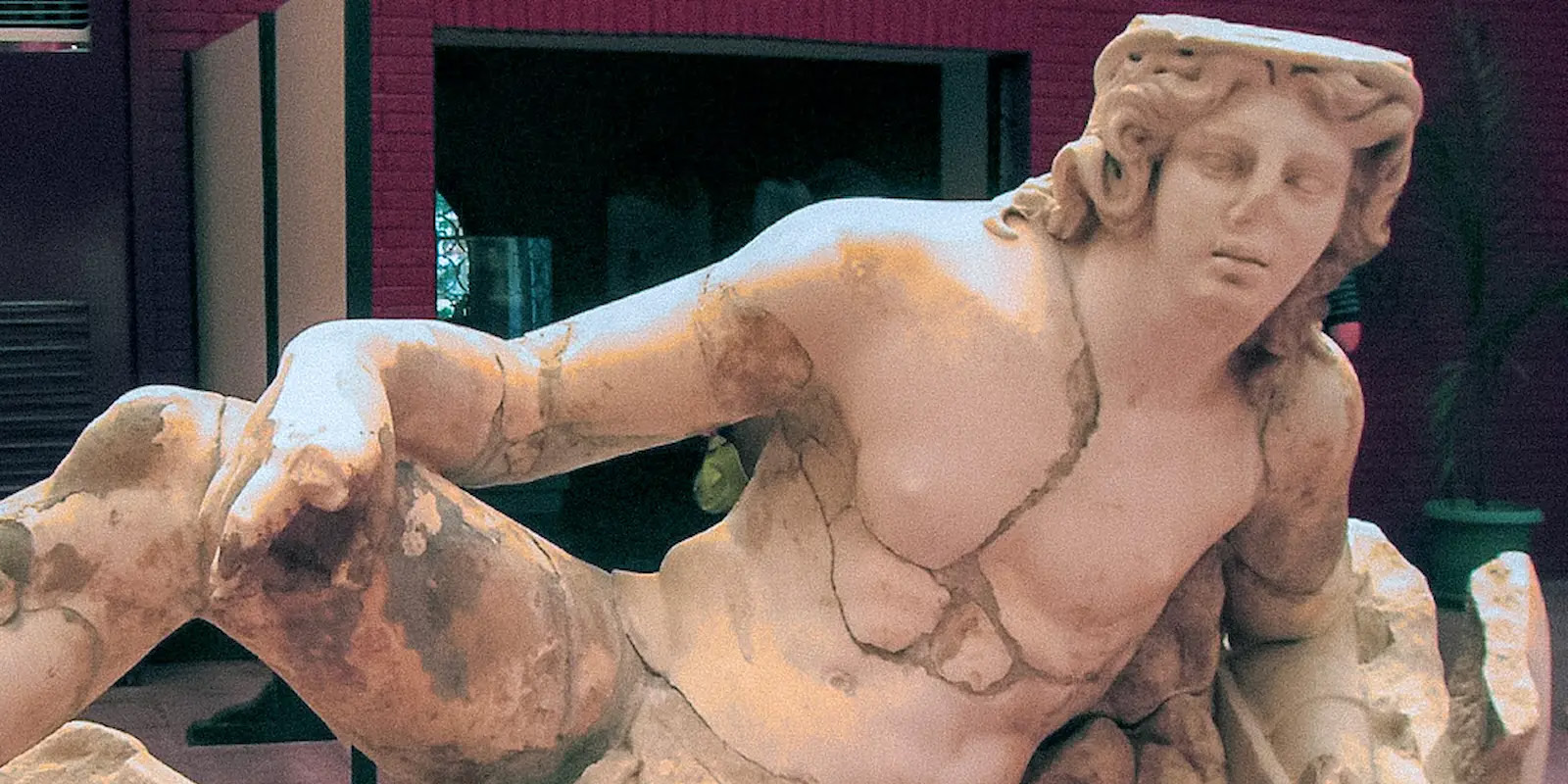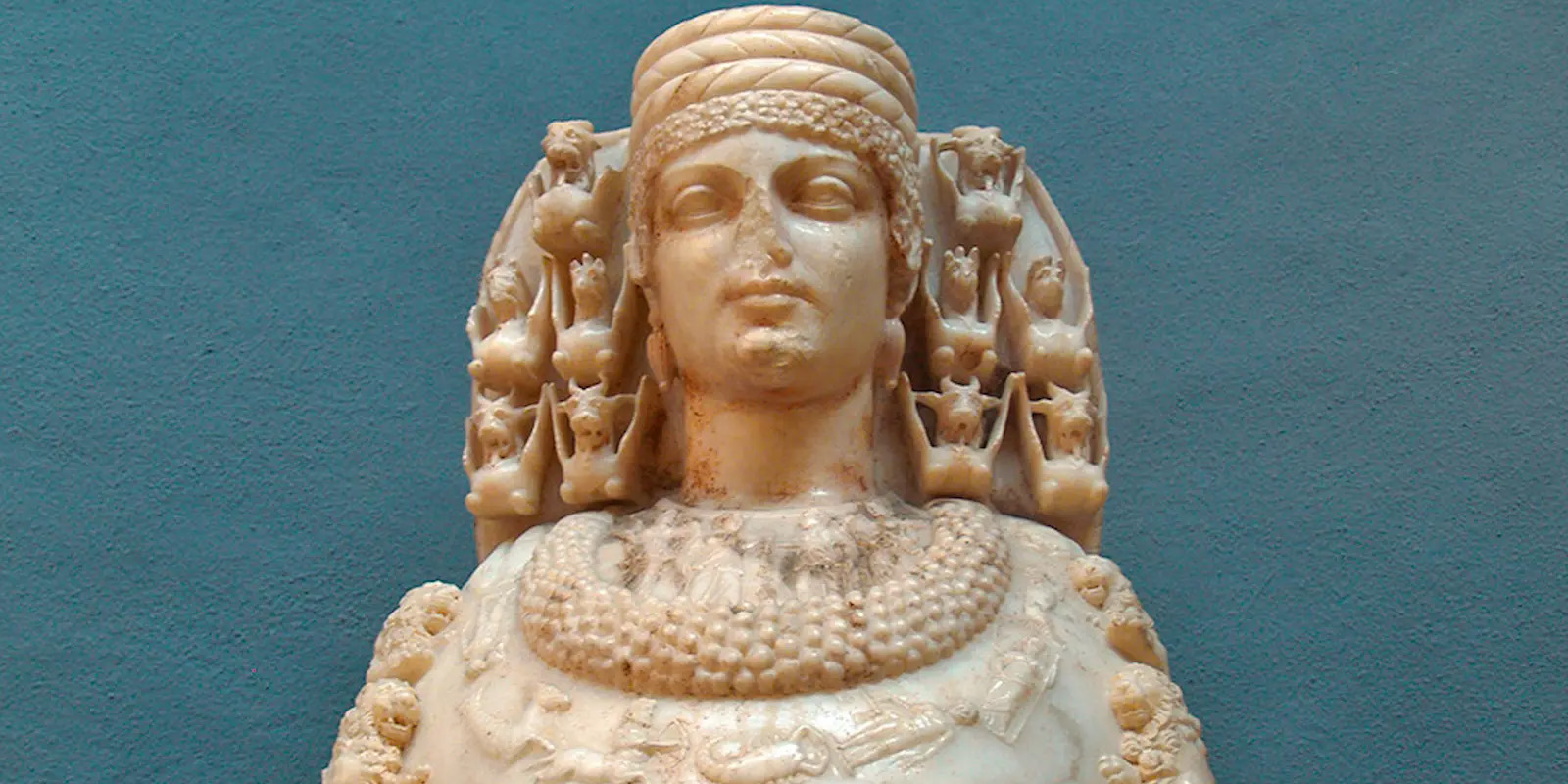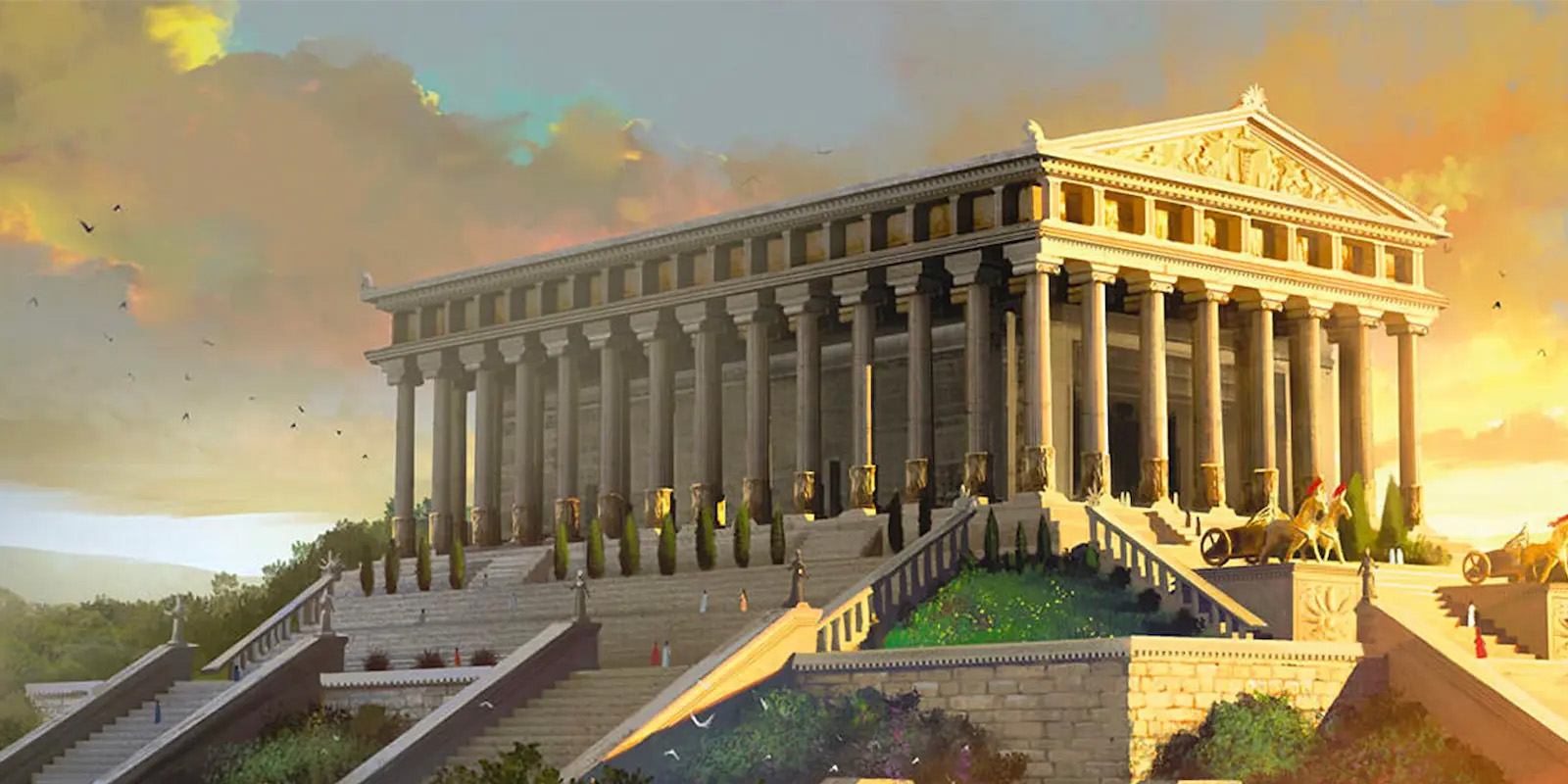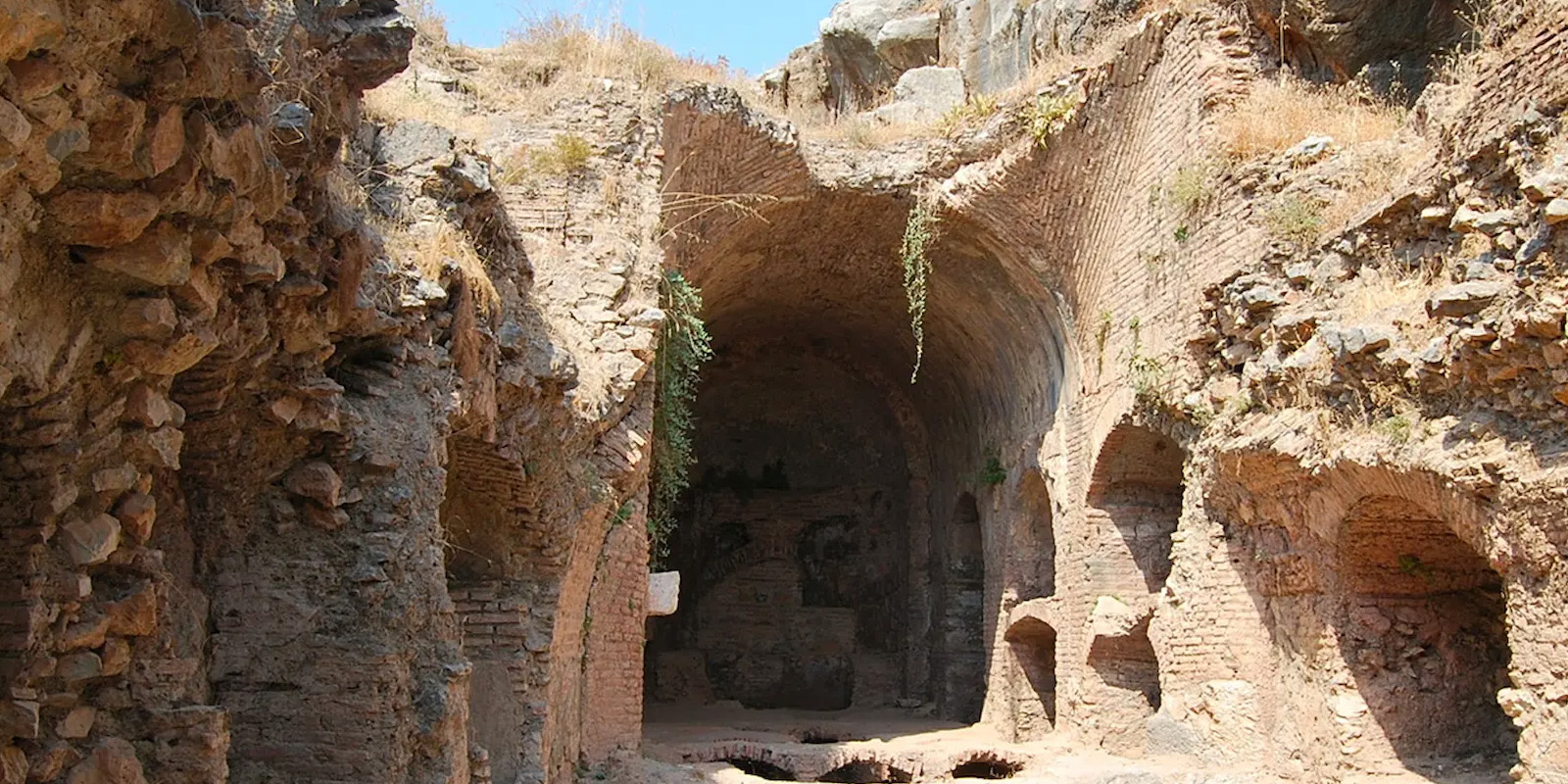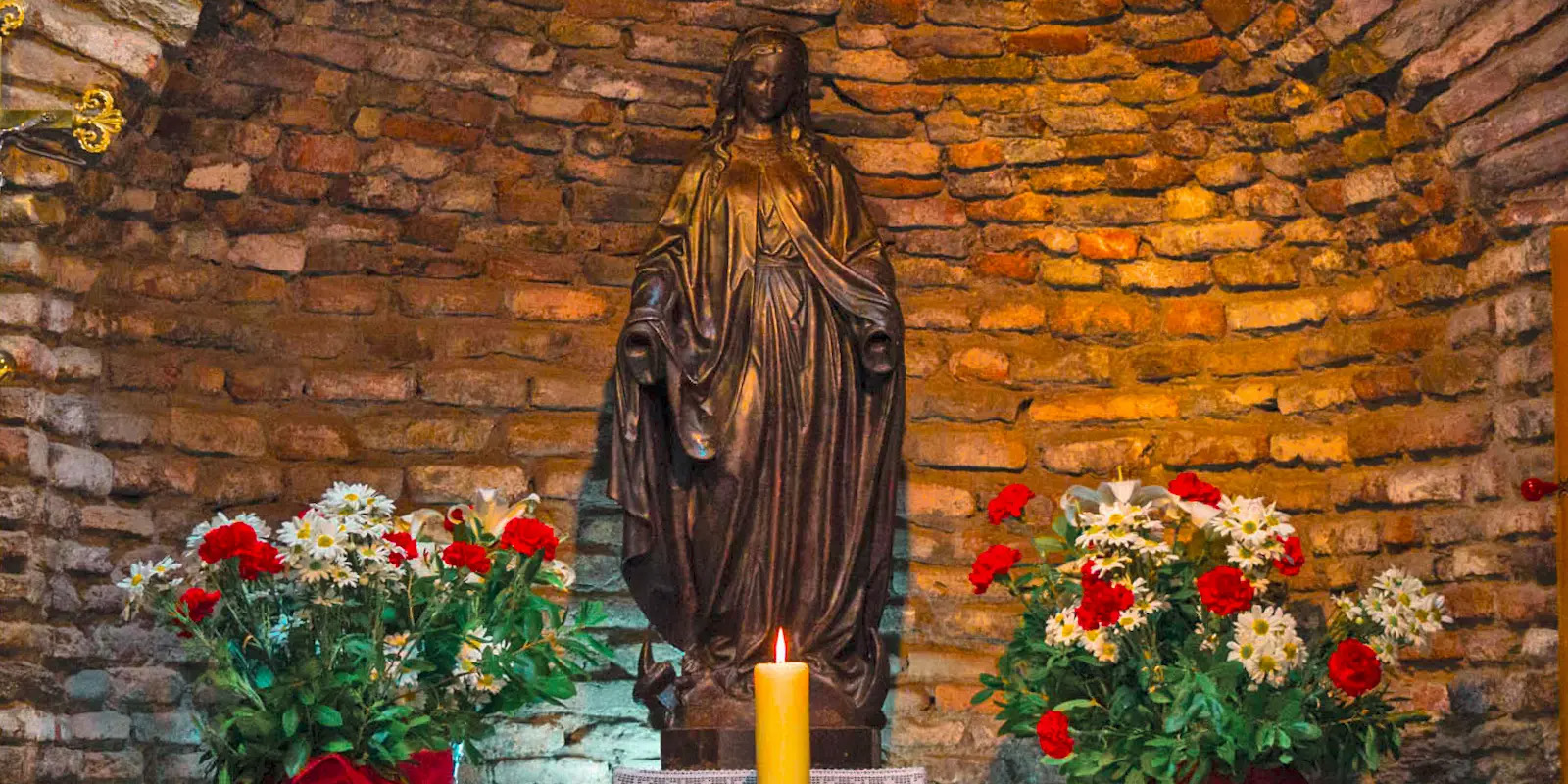Great Theatre in Ephesus
The magnificent theater of Ephesus stands as a remarkably well-preserved and awe-inspiring structure.
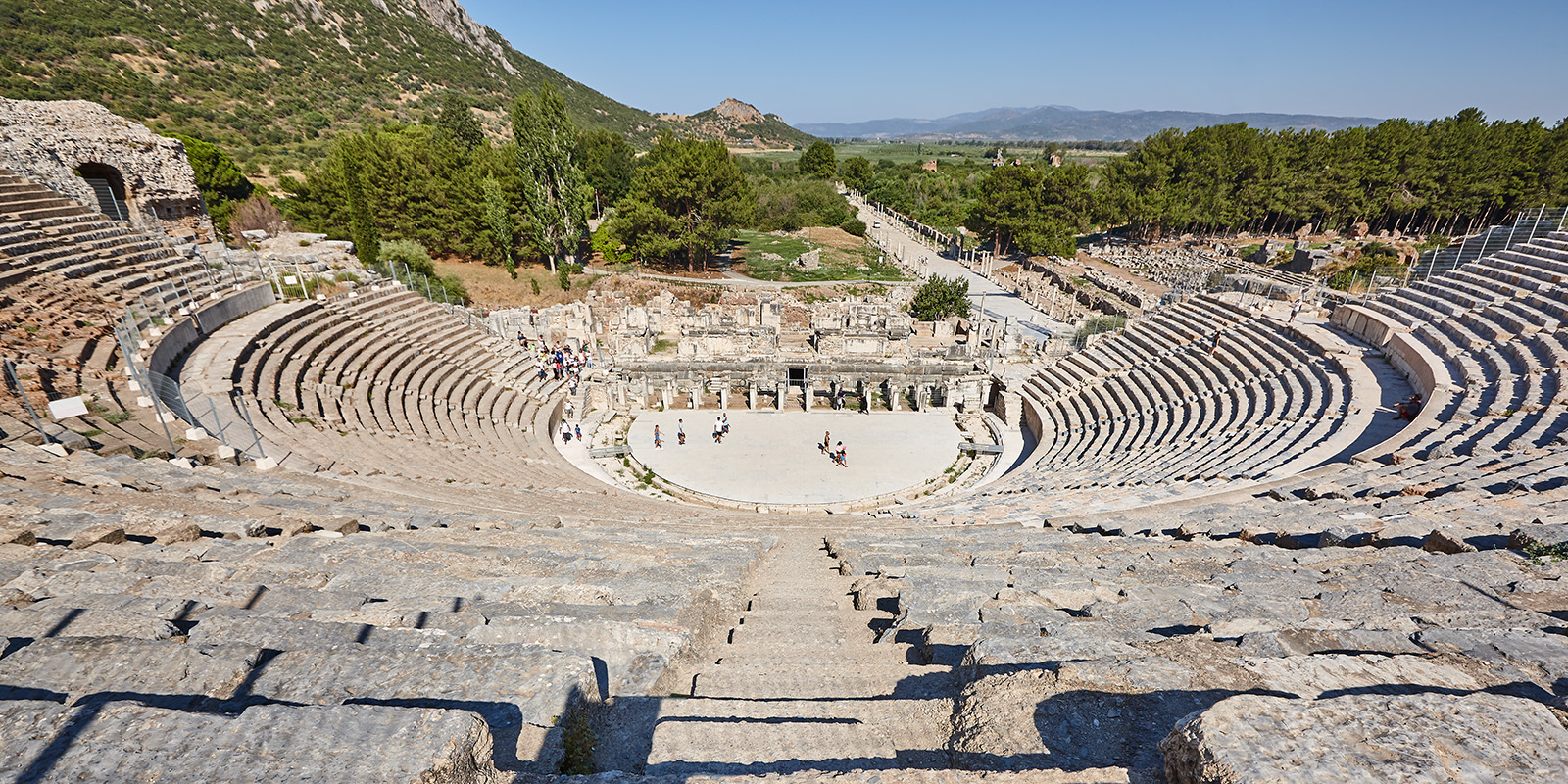
The grand theater of Ephesus stands as an impeccably preserved and truly remarkable architectural marvel. Constructed predominantly from marble, this imposing structure boasts a width spanning 145 meters, with its seating area once accommodating up to 24,000 spectators.
Originating in Hellenistic times, the theater underwent significant expansion during the Roman era under Emperor Claudius (41-54 AD). Notable enhancements included the construction of a two-storey stage (skene) during the reign of Emperor Nero (54-68 AD), with a third storey added later in the mid-2nd century. The completion of its construction occurred under Emperor Trajan (98-117 AD). Notably, an aqueduct was engineered in the early 2nd century AD to supply water to Ephesus, with its trajectory necessitating a channel through the upper seats for the Trajan nymphaeum.
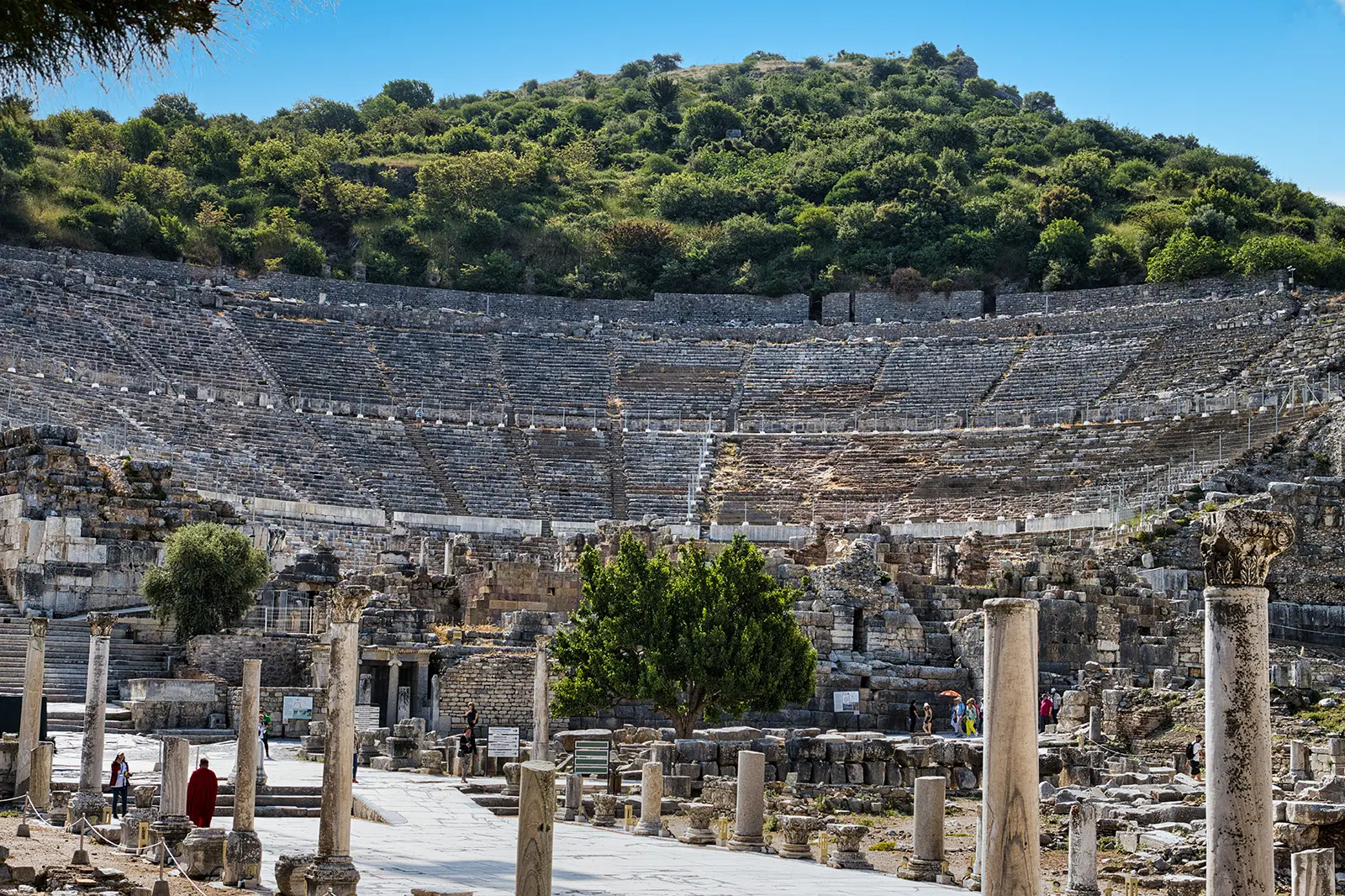
This theater, a blend of Hellenistic and Roman design, underwent seismic events and subsequent repairs throughout its history. While often associated with St. Paul's visit to Ephesus, historical evidence suggests he did not preach there during the unrest.
Excavations began before WWI, with extensive restoration efforts undertaken later. The theater remains a testament to Ephesus' rich cultural heritage, attracting visitors from around the world.
Discover Ephesus
Exploring Ephesus: Unraveling the Ancient Wonders of Turkey
Ephesus, located just 18 kilometers away from Kusadasi, stands as one of the most remarkable ancient cities in the world.
The Terrace Houses in Ephesus are upscale residences located adjacent to Curetes Street, across from the Temple of Hadrian.
Constructed in the 2nd century AD, the Celsus Library stands as a tribute to Tiberius Julius Celsus Polemaeanus, a prominent Roman consul and governor of the Asian province.
The magnificent theater of Ephesus stands as a remarkably well-preserved and awe-inspiring structure.
The Museum of Ephesus, located in the Selcuk district, showcases artifacts unearthed during excavations in Ephesus since 1964.
Artemis, known as the goddess of the hunt, wilderness, and childbirth, held a special place in the hearts of the Ephesians.
This grand edifice was dedicated to Artemis, the Greek goddess of hunting, wilderness, and fertility, and was revered as one of the Seven Wonders of the Ancient World.
Deep within the annals of ancient Ephesian folklore lies a story shrouded in mystery and wonder - the legend of the Seven Sleepers.
Believed by many Christians to be the final home of Mary, the mother of Jesus, this humble abode has become a sanctuary of pilgrimage
